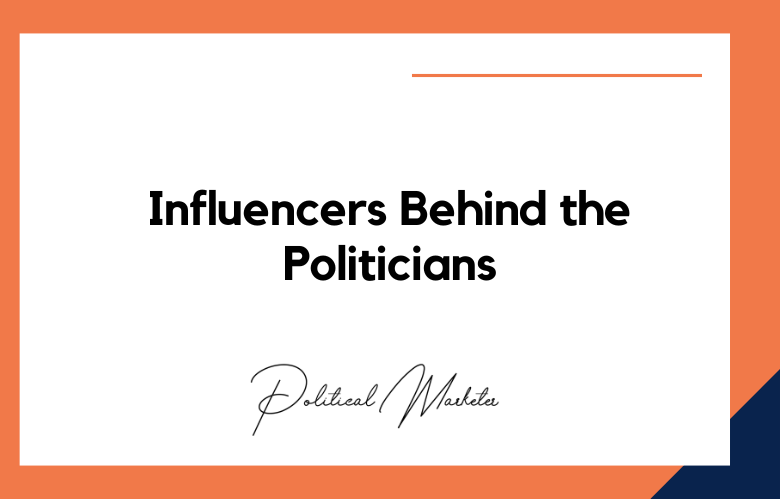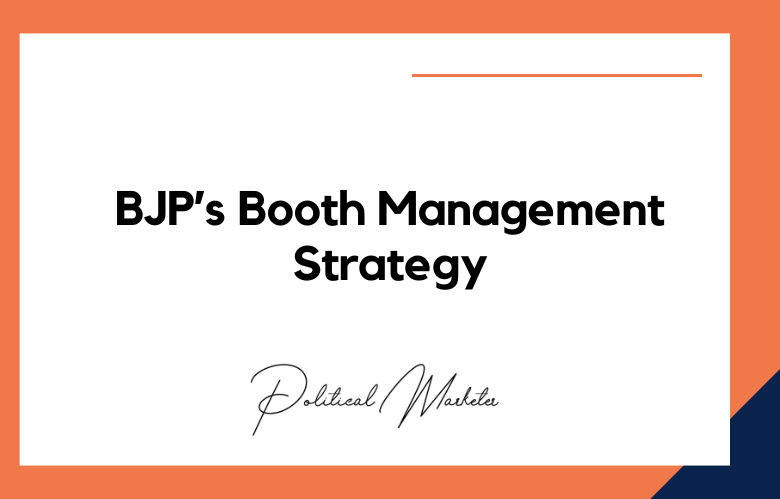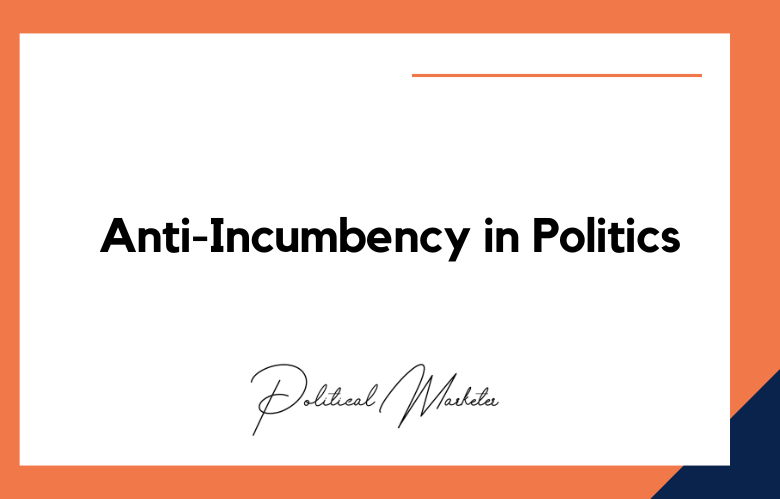Running a political ad in India involves a series of regulated steps, especially on platforms like Facebook, which has stringent policies to ensure transparency and fairness in political advertising.
How to Run Political Ads in India
Running political ads in India is a multifaceted endeavor that requires a deep understanding of the nation’s diverse electoral landscape, stringent adherence to regulatory frameworks, and strategic digital engagement. India’s vibrant democracy, characterized by its varied cultures, languages, and political ideologies, presents challenges and opportunities for political advertisers.
The process begins with thoroughly comprehending the guidelines laid out by the Election Commission of India (ECI), which ensures transparency, fairness, and ethical practices in political campaigning, particularly during critical election periods.
What is the Run Political Ad in India?
Running a political ad in India, especially on platforms like Facebook, involves navigating a complex landscape of regulations and digital guidelines to ensure transparency, accountability, and respect for the diverse socio-political fabric of the country.
Before embarking on this journey, it’s essential to understand the stringent requirements set forth by local regulatory bodies, such as the Election Commission of India, and the digital platforms themselves.
The process starts with a mandatory verification procedure, where advertisers must confirm their identity and eligibility to run political ads. This prevents anonymous or foreign interference in India’s electoral processes. Following verification, all political ads must include clear disclaimers identifying the payers, ensuring that the electorate is well-informed about the sources of political messaging.
Moreover, adherence to Facebook’s Community Standards and Advertising Policies is non-negotiable. These guidelines are designed to prevent misuse of the platform, prohibiting content that spreads misinformation, incites hate, or could suppress voter turnout. Given India’s rich diversity, advertisers must also be sensitive to linguistic, cultural, and regional nuances to ensure their content is respectful and compliant across all demographics.
Here’s a simplified guide to help you navigate this process:
Understand Local Regulations: Before you even begin planning your ad campaign, it’s crucial to familiarize yourself with the local laws and regulations governing political advertising in India. This includes guidelines set by the Election Commission of India, which often implements specific rules during election periods to ensure fair campaigning.
Facebook’s Advertiser Verification: Facebook requires advertisers to complete a verification process for political advertising. This might involve submitting personal identification, business documentation, and other information confirming your identity and eligibility to run political ads in India. This process helps prevent foreign interference and ensures that ads are transparent about who is paying for them.
Political Ad Labeling: Once verified, your political ads on Facebook must be clearly labeled as such, with a disclaimer that states the entity responsible for the ad. This is part of Facebook’s efforts to enhance transparency in political advertising, allowing users to know who is behind the political content they’re seeing.
Ad Content Compliance: Your ad content must adhere to Facebook’s Community Standards and Advertising Policies. This includes avoiding misinformation, hate speech, and content that could suppress voter turnout. Given India’s diverse linguistic and cultural landscape, ensuring your ad content is appropriate and respectful across different communities is vital.
Ad Targeting Restrictions: Be aware of any restrictions on ad targeting that Facebook might impose for political ads. These restrictions are designed to protect users’ privacy and prevent potential discrimination or undue influence.
Monitoring and Adapting: Once your ad is live, monitoring its performance and the public response is essential. Be prepared to change the ad content or targeting to ensure compliance with any new regulations or Facebook policies.
Record-Keeping: Maintain detailed records of your ad spending, targeting criteria, and content. This might be required to comply with local election laws or Facebook’s auditing processes.
Running political ads in India on Facebook demands a careful approach, respecting both the platform’s policies and India’s diverse socio-political landscape. Staying informed and prepared to adapt to changing regulations is critical to a successful and compliant political ad campaign.
The Art of Crafting a Winning Political Ad in India
The Art of Crafting a Winning Political Ad in India is a nuanced endeavor transcending mere messaging. It delves deep into the rich tapestry of India’s cultural, linguistic, and political diversity. It’s an intricate dance of blending compelling narratives with the socio-political ethos of the world’s largest democracy, where every ad has the potential to resonate profoundly or fall flat among its myriad audiences.
At the heart of a successful political ad is a profound understanding of the Indian electorate’s pulse. This requires grasping the pressing issues and sentiments across different states and regions and appreciating the diverse cultural nuances that define India’s social fabric. The challenge lies in crafting messages that are not only politically astute but also culturally sensitive and regionally relevant, ensuring they strike a chord with various demographic segments.
Adhering to the legal and ethical frameworks governing political advertising in India is paramount, in addition to cultural and linguistic finesse. Navigating the complex web of regulations set forth by the Election Commission of India, alongside the stringent policies of digital platforms like Facebook, requires meticulous attention to detail and a commitment to transparency and fairness.
Breaking Down the Dos and Don’ts of Political Ads in India
Navigating India’s complex political advertising landscape requires a keen understanding of legal stipulations and platform-specific guidelines, especially for digital platforms like Facebook. Here’s a concise breakdown of the dos and don’ts:
Dos:
Verify Your Identity: Ensure you complete the identity verification processes required by platforms and adhere to the legal requirements for political advertising in India.
Adhere to Legal Compliance: During election periods, abide by the Election Commission of India’s guidelines and the Model Code of Conduct. This includes obtaining necessary approvals for political ads and ensuring their content complies with electoral laws.
Use Clear Disclosures: Include transparent disclosures about who is funding the advertisement, following both platform requirements and Indian election laws.
Respect Community Standards: Ensure that your ad content adheres to the community standards set by the advertising platform, avoiding hate speech, violence, or misinformation.
Stay Informed: Keep up-to-date with changes in the platform’s advertising policies and Indian regulations regarding political advertisements.
Don’ts:
Avoid Misrepresentation: Do not use false or misleading information in your ads, including deep fakes or manipulated content that could mislead viewers about the nature of the information presented.
Steer Clear of Hate Speech: Do not include content that promotes hate or violence against individuals or groups based on race, ethnicity, religion, caste, gender, sexual orientation, or political affiliation.
Respect Privacy: Avoid using personal data in ways that violate platform policies or the privacy rights of individuals, in line with India’s data protection regulations.
Avoid Partisan Misuse: Do not use government resources or symbols in a manner that could imply endorsement or opposition by public institutions in violation of the Model Code of Conduct.
Beware of Timing: Be mindful of the specific timeframes during which political advertising is allowed or restricted, especially around elections, to comply with blackout periods or other regulations set by the Election Commission of India.
By adhering to these guidelines, political advertisers can navigate the intricate requirements of running political ads in India, ensuring their campaigns are effective and compliant and contribute positively to the democratic process.
Navigating the Political Advertising Landscape in India
Navigating the Political Advertising Landscape in India is akin to steering through a vibrant mosaic of cultures, languages, and ever-evolving digital frontiers. This intricate journey demands more than just an understanding of the political pulse; it requires a deep dive into the multifaceted social fabric that weaves this diverse nation together. India’s political advertising landscape is characterized by its sheer diversity and the dynamic regulatory environment that governs it, making it both a challenging and rewarding arena for campaigners and strategists.
At the core of this landscape is the need to resonate with a vast electorate across urban and rural divides, each with its values, concerns, and aspirations. Crafting messages that appeal to this diverse demographic while adhering to the cultural sensitivities and linguistic nuances of each region is crucial.
This balancing act is further complicated by the stringent guidelines set forth by the Election Commission of India, which aims to ensure fairness, transparency, and ethical campaigning, especially during high-stakes election periods.
The digital revolution has significantly altered the playing field, introducing new rules to political advertising. Platforms like Facebook, Twitter, and WhatsApp have become battlegrounds where narratives are built and contested, requiring advertisers to master digital strategies and navigate platform-specific regulations.
The rise of digital campaigning brings the challenge of combating misinformation and maintaining the integrity of political discourse. This responsibility falls on both the advertisers and the platforms themselves.
Leveraging Social Media for Political Ads in India
Leveraging social media for political ads in India has become an indispensable strategy in modern political campaigns, given the country’s vast and diverse social media user base. The digital landscape offers an unparalleled opportunity for political entities to communicate directly with the electorate, mobilize support, and shape public discourse.
However, the use of social media for political advertising in India is governed by a complex set of guidelines that blend legal regulations, platform-specific policies, and ethical considerations.
As political parties and candidates navigate this digital terrain, understanding the nuances of these regulations becomes crucial. The process begins with the mandatory verification of political advertisers, ensuring accountability and transparency. Advertisers must also adhere to the Election Commission of India’s guidelines, especially during election periods, to uphold the integrity of the electoral process.
Moreover, the content of political ads must respect community standards, avoiding misinformation, hate speech, and content that could disrupt societal harmony. The strategic use of social media platforms allows for targeted messaging and engagement and necessitates a high degree of responsibility and ethical conduct from political advertisers.
Conclusion:
Running a political ad in India on platforms like Facebook requires a thorough understanding of the platform’s specific policies and the legal framework governing political advertising in the country. Advertisers must ensure that their content adheres to Facebook’s guidelines, which include identity verification, transparency in funding disclosures, and compliance with community standards.
Furthermore, it’s crucial to stay informed about India’s dynamic legal requirements related to political advertising, such as adhering to the Model Code of Conduct during election periods and obtaining necessary approvals from the Election Commission of India, if applicable.
Call: +91 9848321284
Email: [email protected]











